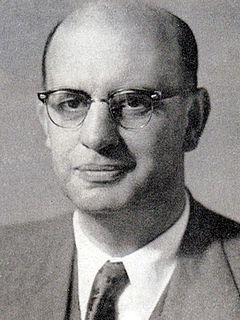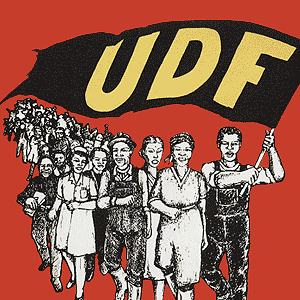Related Research Articles

The African National Congress (ANC) is the Republic of South Africa's governing political party. It has been the ruling party of post-apartheid South Africa since the election of Nelson Mandela in the 1994 election, winning every election since then. Cyril Ramaphosa, the incumbent President of South Africa, has served as leader of the ANC since 18 December 2017.

The Day of Reconciliation is a public holiday in South Africa held annually on 16 December. The holiday came into effect in 1995 after the end of apartheid, with the intention of fostering reconciliation and national unity for the country. The date was chosen because it was significant to both Afrikaner and black African cultures. The government chose a meaningful date for both ethnic groups because they recognised the need for racial harmony. The celebration of the Day of Reconciliation can take the form of remembering past history, recognising veteran's contributions, marching, and other festivities.

Pieter Willem Botha,, commonly known as P. W. and Afrikaans: Die Groot Krokodil, was a South African politician. He served as the last Prime Minister from 1978 to 1984 and the first executive State President from 1984 to 1989.

Helen Suzman, was a South African anti-apartheid activist and politician. She represented a succession of liberal and centre-left opposition parties during her 36-year tenure in the whites-only, National Party-controlled House of Assembly of South Africa at the height of the apartheid era. She hosted the meeting that founded the Progressive Party in 1959, and was its only MP in the 160-member House for a period of 13 years. During that 13-year period she was the only Member of the South African Parliament consistently and unequivocally to oppose all apartheid legislation.
Frederik van Zyl Slabbert was a South African political analyst, businessman and politician. He is best known for having been the leader of the official opposition — the Progressive Federal Party (PFP) — in the House of Assembly from 1979 to 1986.

The United Democratic Front (UDF) linked hundreds of popular organisations together in the struggle against apartheid. The non-racial coalition of about 400 civic, church, students', workers' and other organisations was formed in 1983, initially to fight the new Tricameral Parliament. The UDF's goal was to establish a "non-racial, united South Africa in which segregation is abolished and in which society is freed from institutional and systematic racism." Its slogan was "UDF Unites, Apartheid Divides."
On 13 September 1989, 30 000 Capetonians from a diverse cross-section of the city marched in support of peace and the end of apartheid. The event, led by Mayor Gordon Oliver, Archbishop Tutu, Rev Frank Chikane, Moulana Farid Esack, Allan Boesak, and other religious leaders, was held in defiance of the State of Emergency which banned political protests and apartheid laws which enforced racial segregation. The march resulted in concessions from the apartheid cabinet headed by FW de Klerk, following years of violent clashes between anti-apartheid protestors and the police, and was the first such event to include elected world government functionaries. It was considered the "last illegal march" at the time, and went ahead without major confrontation. The size of the protest, despite the open defiance, and the restrained response from the police signalled the beginning of the transition to democracy.

Harry Heinz Schwarz was a South African lawyer, statesman and long-time political opposition leader against apartheid in South Africa, who eventually served as the South African Ambassador to the United States during the country's transition to majority rule.
The Little Rivonia Trial was a South African apartheid-era court case in which several members of the armed resistance organization Umkhonto we Sizwe faced charges of sabotage. The accused were: Laloo Chiba, Dave Kitson, Mac Maharaj, John Matthews and Wilton Mkwayi. A confederate of theirs, Lionel Gay turned state witness, and in return, the prosecution dropped the charges against him.
Padraig O'Malley is an Irish peacemaker, author and professor at the University of Massachusetts Boston who specializes in the problems of divided societies, such as South Africa and Northern Ireland. He has written extensively on these subjects and has been actively involved in promoting dialogue among representatives of differing factions.

Zacharias Johannes "Zach" de Beer was a liberal Afrikaner South African politician and businessman. He was the last leader of the liberal Progressive Federal Party and then the co-leader of the new liberal Democratic Party.

Malawian-South African relations refers to the bilateral relationship between Malawi and South Africa. South Africa's first formal relationship with an independent African country was established with Malawi, beginning in 1967.
The African National Congress (ANC) is the current governing party of the Republic of South Africa. The ANC was founded in 1912 in Bloemfontein and is the oldest liberation movement in Africa.
Although the Democratic Alliance of South Africa in its present form is fairly new, its roots can be traced far back in South African political history, through a complex sequence of splits and mergers.

The Native Labour Act, 1953 was a South African law that formed part of the apartheid system of racial segregation in South Africa. The effect of the law was to prohibit strike action by black Africans.
Leon Wessels is a South African lawyer, politician, and activist who served in the white minority National Party government during the apartheid years and was one of very few Afrikaner politicians to show public contrition for the acts of that government.

On 2 February 1990, the State President of South Africa F. W. de Klerk delivered a speech at the opening of the 1990 session of the Parliament of South Africa in Cape Town in which he announced sweeping reforms that marked the beginning of the negotiated transition from apartheid to constitutional democracy. The reforms promised in the speech included the unbanning of the African National Congress (ANC) and other anti-apartheid organisations, the release of political prisoners including Nelson Mandela, the end of the state of emergency, and a moratorium on the death penalty.

Rowan Cronjé was a Rhodesian politician who served in the cabinet under prime ministers Ian Smith and Abel Muzorewa, and was later a Zimbabwean MP. He emigrated to South Africa in 1985 and served in the government of Bophuthatswana.
The Transitional Executive Council (TEC) was a multiparty body in South Africa that was established by law to facilitate the transition to democracy, in the lead-up to the country's first non-racial election in April 1994.
References
- 1 2 O'Malley, Padraig. "1977". The Heart of Hope: South Africa's Transition from Apartheid to Democracy. Nelson Mandela Centre of Memory.
- ↑ "Opposition starts bid to impeach Vorster". Montreal Gazette. 27 March 1979. Retrieved 8 January 2012.
- ↑ O'Malley, Padraig. "1980". The Heart of Hope: South Africa's Transition from Apartheid to Democracy. Nelson Mandela Centre of Memory.
- ↑ Croft, Adrian (30 March 1987). "Pretoria cabinet minister found dead". The Herald. Glasgow. Retrieved 8 January 2012.
